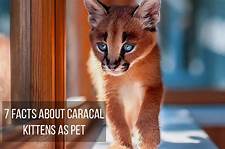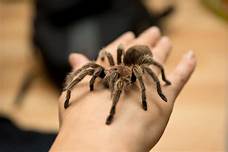Can Caracal Cats Be Pets?
Caracal cats are exotic wild cats known for their tufted ears and unique appearance. While they may seem alluring as pets, it is essential to understand the complexities of owning and caring for a caracal cat before making a decision.

Temperament and Behavior
1. Wild Nature: Caracal cats are wild animals and retain their instinctual behaviors. They are not domesticated like traditional house cats, and their unpredictable nature can pose safety risks.
2. Solitary Creatures: Caracals are solitary animals, preferring to live independently. They may not crave human companionship and could become aggressive if not given enough space and privacy.
3. High Prey Drive: Caracals have a strong prey drive and natural hunting instincts. They may see small pets or children as potential prey, leading to dangerous situations.
Legal and Ethical Considerations
1. Legal Issues: Owning a caracal cat may be illegal in certain regions or countries. Possession of exotic pets is regulated, and obtaining the necessary permits and licenses can be challenging.
2. Ethics of Captivity: Keeping a wild animal in captivity raises ethical concerns. Caracals belong in their natural habitats, where they can express their natural behaviors and instincts.
3. Conservation Impact: Removing caracals from their natural habitats can disrupt the ecological balance and contribute to the decline of the species.
Housing and Care Requirements
1. Specialized Enclosure: Caracals require a large and secure outdoor enclosure that mimics their natural habitat. This can be costly and requires frequent monitoring.
2. Nutritional Needs: Caracals have specialized dietary needs, including raw meat and occasional live prey. Providing a balanced diet can be challenging and expensive.
3. Veterinary Care: Caracals may require specialized veterinary care not readily available. Their unique health needs can be difficult to manage without proper expertise.
Conclusion
Keeping caracal cats as pets is a complex and challenging undertaking that involves legal, ethical, and practical considerations. These wild animals are not suitable for the average pet owner. Their unpredictable nature, specialized care requirements, and potential dangers make them unsuitable companions for most households.
Declaration: All article resources on this website, unless otherwise specified or labeled, are collected from online resources. If the content on this website infringes on the legitimate rights and interests of the original author, you can contact this website to delete it.





